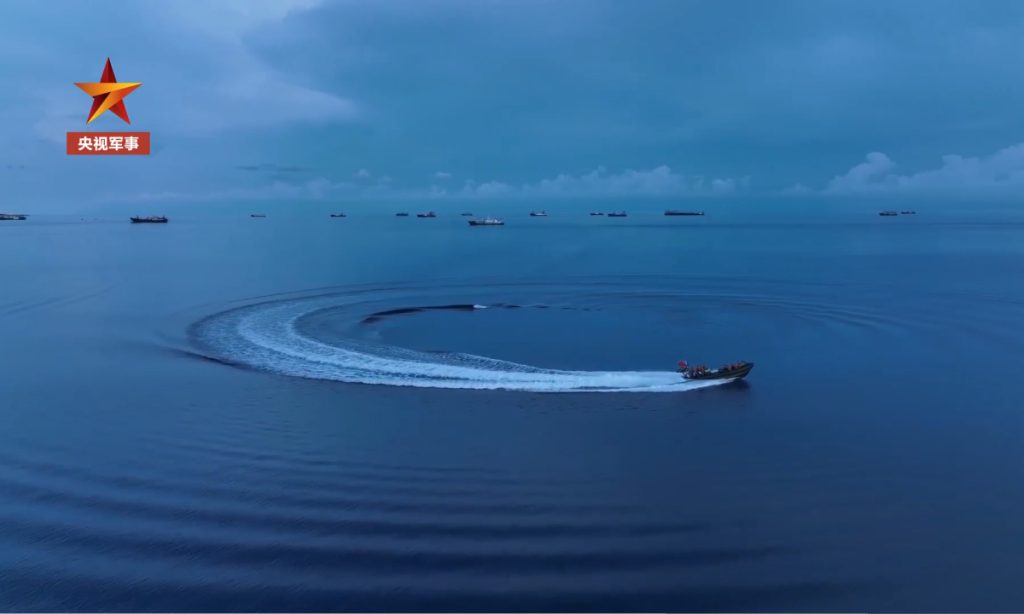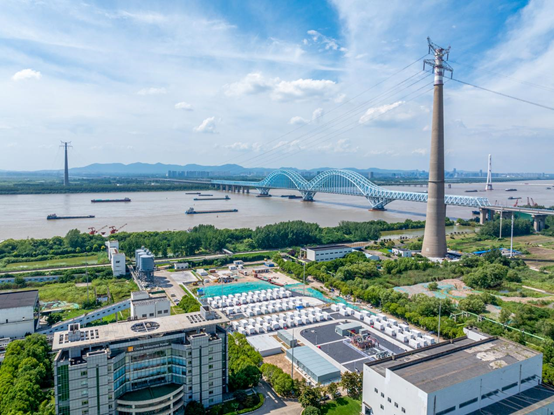Manila urged to stop abusing arbitration, disrupting South China Sea

Despite the fallacies of the illegal South China Sea Arbitration Award released on July 12, 2016 being exposed, the Philippines continues to ignore the truth and instead celebrated the so-called "8th anniversary"of the illegal arbitration award with Western allies on Friday. Analysts called it a "political show" that is simply a way to perpetuate the "China threat" rhetoric and manipulate international perception in order to constrain China on the South China Sea issue.
Local media reported that the Philippines hosted an alleged "biggest-ever West Philippine Sea (South China Sea) conference" in Manila on July 12, which was attended by key military leaders, ambassadors and experts from the US, Australia, Canada, France, and Japan.
The US and the EU have issued statements to express support for the illegal arbitral award, which violates China's sovereignty.
In response to the statements, Chinese Foreign Ministry spokesperson Lin Jian said on Friday that the US selfishly refuses to accede to UNCLOS, and yet often lectures other countries on their implementation of UNCLOS. This is hypocrisy, double standard and selective application of international law.
The US has gone back on its public commitments of not taking a position on sovereignty issues in the South China Sea. It encouraged the Philippines to launch the arbitration on the South China Sea, and blatantly released a statement to endorse the award. This is political manipulation aimed at using allies to destabilize the South China Sea and the region and advance the nefarious agenda of going after China, Lin said.
With the concerted efforts of China and ASEAN members, the South China Sea has been generally stable. China will work with ASEAN members to keep the South China Sea peaceful and stable, and contribute to regional prosperity and development, the spokesperson said.
Lin urged countries outside the region led by the US to earnestly respect these efforts, refrain from statements and actions that disrupt regional peace and stability, and stop being a troublemaker in the South China Sea.
Experts are urging the Philippines to abandon the illusion of being a "winner" in the ruling and to stop relying on it to handle disputes.
Scholars also stressed the importance of remaining vigilant against the Philippines potentially inviting additional external forces to meddle with the South China Sea issue, as this could heighten the risk of military conflicts.
Arbitration is a manipulated trap
Chinese institutes released a report on Thursday thoroughly outlining the fallacies of the South China Sea Arbitration Award and the damage it does to the international rule of law. It explains why the Philippines' claims are illegal, and why the arbitration award cannot be accepted.
The report pointed out that Nanhai Zhudao (South China Sea islands) are China's inherent territory, and that the Philippines' territorial claim over part of Nansha Qundao is groundless from the perspectives of both history and international law.
Neither the international treaties that established the territorial boundaries of the Philippines nor the Philippine Constitution prior to 1997 included the Nansha Islands or Huangyan Island in the Philippine territory. For many years after the end of World War II, the US, an ally of the Philippines, recognized China's sovereignty over the Nansha Islands in diplomatic correspondence, applications for surveys, and notification of navigational overflight plans. Maps and books published by the US during the same period all recognized China's sovereignty over these islands in the South China Sea.
"With a well-recorded history and hard evidence, the Arbitration Award cannot give legitimacy to the Philippines' illegal claims in the South China Sea. Rather, it exposes the rogue logic of the Philippines as a thief shouting 'stop the thief'," Ding Duo, a deputy director of the Institute of Maritime Law and Policy at the China Institute for South China Sea Studies, told the Global Times.
Backed by the Arbitration Award and a small number of non-regional countries, the Philippines calls white black and confuses right and wrong. The US has incited the Philippines and even showed it how to escalate tensions step by step with China. This is the main reason behind the growing tensions in the South China Sea, said the scholar.
The Philippines and the US held a high-profile "commemoration" of the Arbitration Award, precisely demonstrating that the South China Sea arbitration case is a trap manipulated by the US, initiated by the Philippines, and carried out in collusion with the arbitral tribunal in the Hague, he argued.
Ding said that fallacies in the arbitration ruling regarding the interpretation of treaties, determination of facts, and acceptance of evidence have been widely questioned and criticized, and its political manipulation is truly obvious.
Introducing external risks and chaos
As more extraterritorial countries have increased their military activities in the South China Sea and intensified unilateral actions to consolidate their vested interests, concerns are rising that the Philippines is introducing more external risks into the region.
Japan and the Philippines signed a defense agreement on Monday that allows the deployment of Japanese forces for joint drills in the Philippines, according to media reports. Furthermore, it is evident from the first ever US-Japan-Philippines trilateral summit held in Washington in April that a new military confrontation bloc is forming.
The alliance and military cooperation between the three countries are strengthening, bringing risks into the entire South China Sea region in the Western Pacific, Wu Shicun, the chairman of the Huayang Research Center for Maritime Cooperation and Ocean Governance, told the Global Times.
Meanwhile, the US has continued to strengthen its military activities on China's doorstep in the South China Sea and surrounding areas. A think tank report released in March revealed that the US heightened deployment of aircraft carriers, nuclear submarines and bombers, holding intensified close-in reconnaissance operations, and holding joint exercises in 2023, which posed growing risks to China-US relations.
Following the US, Japan will become a new challenge and risk factor in the South China Sea. This will lower the threshold for the Japanese Self-Defense Forces to enter the South China Sea and Philippine military bases, providing great convenience for Japan to provide weapons, equipment, and training support to the Philippines. There is now a higher possibility of a new arms race and small-scale conflicts in the region, Wu warned.
In less than two years, the current Philippine government has nearly dismantled the good practices established over recent years for managing maritime differences and properly handling the South China Sea issue between China and the Philippines. The bilateral relationship, which had gradually emerged from the shadow of the illegal South China Sea arbitration ruling, now appears to have reset and is even regressing, Wu said.
In a previous exclusive interview with the Global Times, former Philippine president Rodrigo Duterte expressed regret over the current Philippine government's approach and policies on the South China Sea issue. He said he felt "very sad" about the loss of the peace during his administration, and called for both countries to resolve disputes through peaceful dialogue.
China has a growing capability, with rock solid resolve, to safeguard its territorial sovereignty and maritime rights in the South China Sea, Ding stressed. "The countermeasures against the Philippines and the costs it has borne fully demonstrate that expecting China to accept a unilateral ruling under comprehensive pressure on the South China Sea issue is a fantasy. The Philippines will end up with swallowing the bitter consequences," said Ding.

